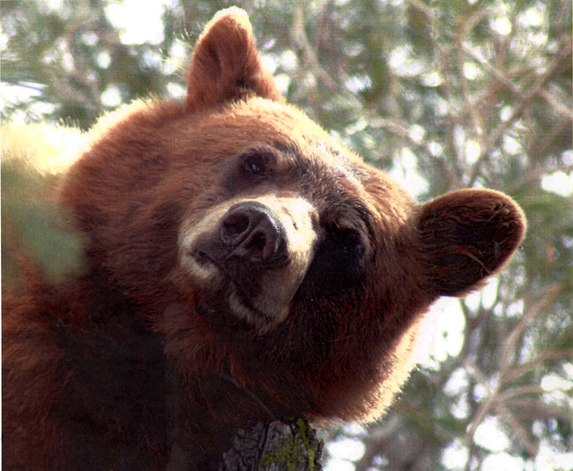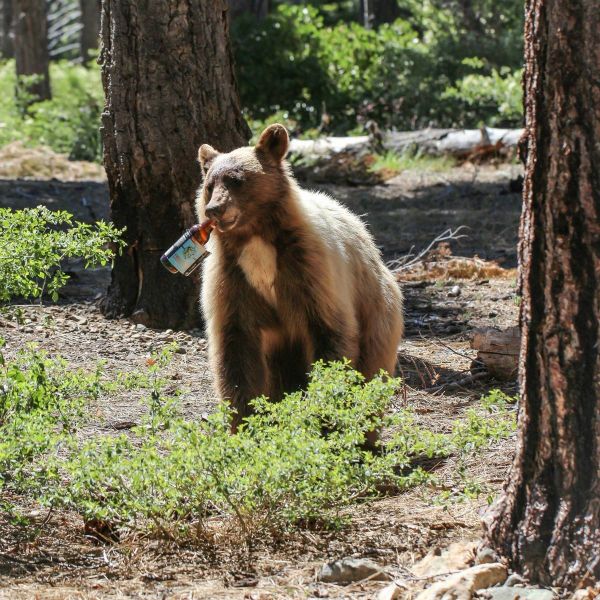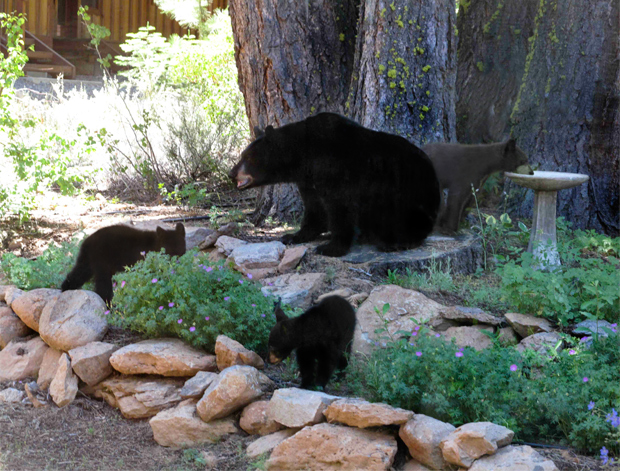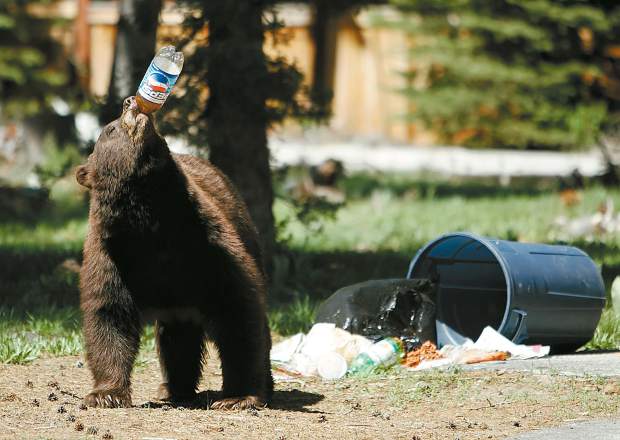Wildlife is a key component of North Lake Tahoe’s natural ecosystem. Whether they’re in the air or down into the depths of our crystal waters, each creature is as wild and wonderful as the next. They took up residency here long before we moved in, so we want to do our part to be the best house guests. Lets keep bears wild!


We share the Tahoe basin with all of our wildlife friends, including black bears. You may have the opportunity to see one of these magnificent animals during your stay.
Bear Facts
- Black bears are the dominant kind of bear in the Lake Tahoe region.
- Despite the name, they vary in color, from tan to brown/black.
- Female black bears can weigh from 100-200 pounds and males are even larger at 250-350 pounds.
- Black bears in Lake Tahoe are known to be “opportunistic omnivores” meaning they will eat almost anything that they can find. Their diets also change with the season.
- Black bear’s sense of smell is ten times greater than a bloodhound, so they can smell food from many miles away.
- They have excellent vision (similar to that of a human) and a long-term memory. They can often remember the exact place they found food previously.
- They are attracted to:
- Barbecue grills
- Pet food
- Bird feed
- Backyard chickens
- Wrappers and empty cans
- Coolers
- Scented candles
- Scented toiletries like lip balm, sunscreen, soap, lotion and toothpaste
- Bears are especially active when they emerge from hibernation (in the early spring) and the months leading up to hibernation starting in mid-August.
- Hibernation usually begins mid-November, but can be as late as January if a winter is unseasonable warm.
What You Need to Know
Bears are determined and driven by their instincts, but they can also be easily intimidated by your presence. They are naturally afraid and are easily scared off when they know their visit isn’t welcome. Bears are also quick to learn and understand if your intentions are to not let them get away with taking what isn’t theirs. If bears believe you’re there to protect your “den” and food source, they won’t claim your space as their own. Dominance is key when getting bears to lose focus and move on to an alternative plan.
Unfortunately, people have introduced unnatural foods into the bears’ regular diet. These new foods are garbage, pet food, and birdseed. Providing the foods that are natural to humans is unnatural to bears. It attracts them to our garbage. If the bear then becomes a nuisance, it may be put to death, since bears in California are not relocated. Please help to preserve our bears’ right to share our world with us by following these simple suggestions:
- Do not leave garbage out overnight unless it's in a bear-proof steel container
- Do not leave pet food out on decks overnight. Take it inside.
- Do not leave windows (screened or not) open on the ground level when you leave the house. If bears can smell food, they will try to get in.
- Do not leave food or ice chests on decks or in vehicles. Bears can smell food, lotions, gum, toothpaste, etc. in your trunk or glove compartment.
- Clean your barbecue after use. Allow the fire to burn off all food particles.
- Remember to close and lock all doors on the ground level when leaving the house.


If You Encounter a Bear
In Your Yard:
Do not run from him. This may stimulate his instinct to chase. Let the bear know this is YOUR territory and he doesn't belong there. Don't be afraid or submissive. Yell at him, bang pots & pans, throw rocks. Make him think you are a bigger bear than he is!
In the Woods:
This is HIS territory but he's happy to share. Again, don't run. Let him know you are there. Make eye contact but don't stare. Pick up small children who may run, and keep them calm. Appreciate the experience and move on with respect and self-confidence.
Above all, enjoy your visit to Lake Tahoe. If you do happen to see a bear, be responsible and appreciate the experience! If you desire any additional information, please contact the Bear League at 530.525.PAWS (7292). You can learn more about bears in Lake Tahoe on the Bear League website.